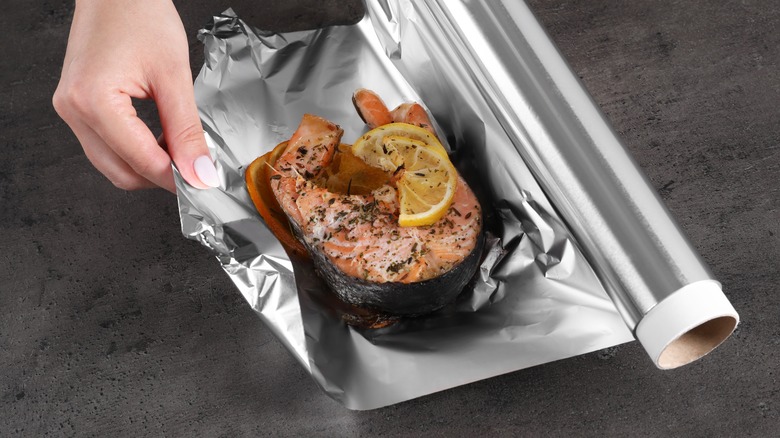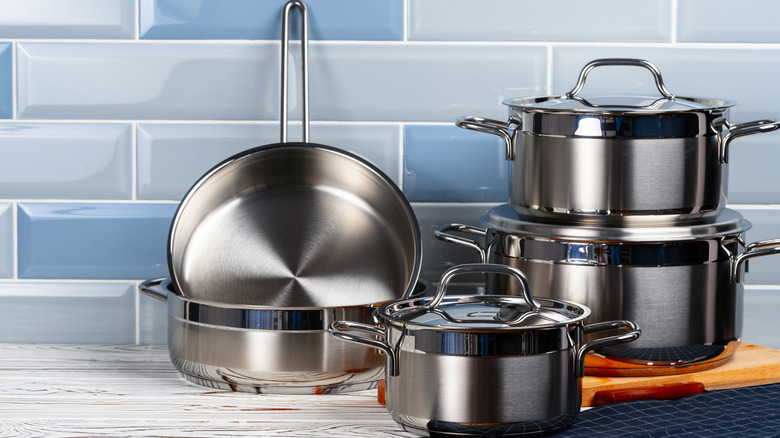Here's Why Cooking With Lemon On Aluminum Is A Mistake
Most people probably don't think twice about lining a sheet pan with aluminum foil before cooking a dish in the oven. After all, the practice helps cut down on some of the cleaning time. However, if you happen to be cooking something with lemons, whether in the form of juice or actual slices of the citrus fruit, using the old cover-the-pan-with-foil trick would be a mistake.
You might know what we're getting at if you're proficient in chemistry. However, if you haven't thought about the subject since high school, here's the reason these two common kitchen-finds don't mix: As you likely know, aluminum is a type of metal, and lemons are acidic. When the two interact, it creates a reaction. In the case of cooking with lemon on aluminum, the citric acid in the fruit is strong enough to cause the foil to break down into small particles that will leach into your food, giving it an off-putting gray color and a metallic taste.
This is also an important thing to know about aluminum cookware. If you're in the market for new pots or pans and prefer aluminum, look for cookware that has been anodized. This process creates a layer of aluminum oxide on the surface, making the cookware more durable and less susceptible to reacting with acidic foods.
Is it dangerous to ingest aluminum?
As alarming as it might seem to ingest aluminum, it's not as dangerous as it sounds. According to the CDC, the element can be found in "virtually all food," with the average adult consuming between 7 and 9 milligrams per day through their meals. In such a small amount, aluminum exposure is said not to be harmful. However, overexposure to aluminum — which can happen if a person works in an environment high in aluminum dust — can cause health issues such as lung problems, and it can also pose risks to those with kidney disease.
That being said, you still want to steer clear of cooking on aluminum foil, cookware, or bakeware with citrus fruits like lemons, if not for anything other than to avoid the unfavorable taste it will impart to your meal. Additionally, foods with highly acidic ingredients like tomatoes and vinegar, as well as high-salt foods, should not be cooked on these products, either, for the same reasons. (While we're on the subject, you might also want to avoid using acidic ingredients in your cast iron cookware over similar concerns).
So, what should you do if all you have is aluminum cookware and your recipe calls for lemon juice? Simply add it toward the end of the recipe after it's cooked and removed from the pan. Not only will this prevent any leaching, but it will also preserve the lemony flavor.

